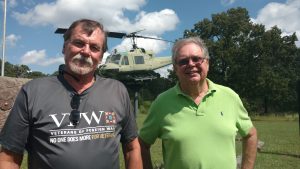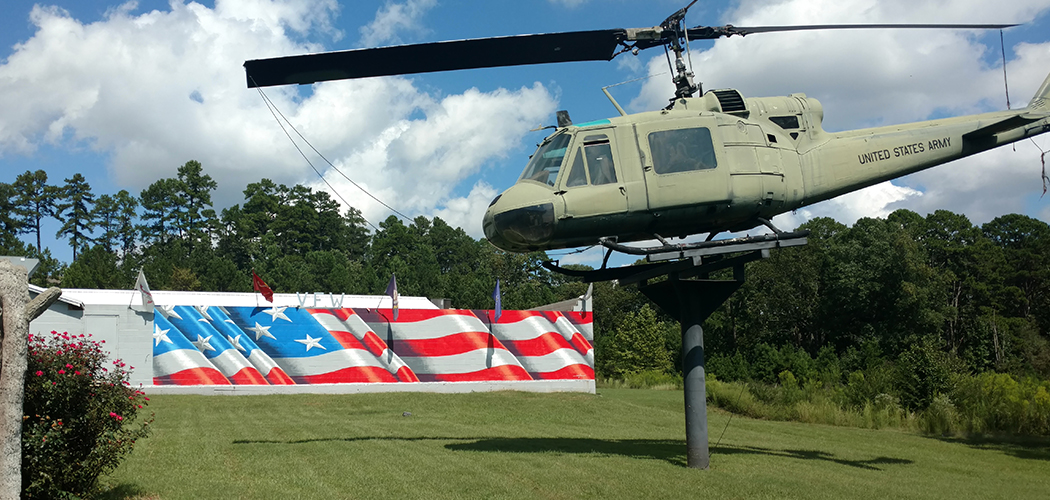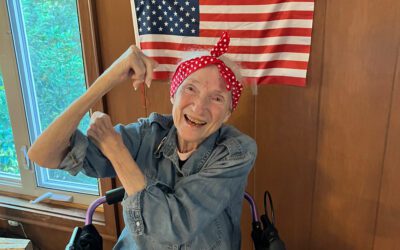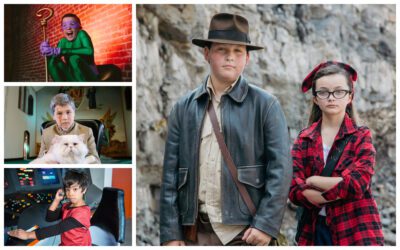[title subtitle=”words and images: Dwain Hebda”][/title]
“You gonna play in the tournament?” asks the sixty-something fella with the pool cue in his hand.
I’d been watching the action for the better part of an hour, as two pool tables welcomed a steady rotation of players. It’s Friday night at the VFW, the most hopping of the week with pool and shuffleboard tournaments early, karaoke later on, and cold beer throughout.
“Naw, I’m just watching,” I say as classic rock tumbles out of a speaker above me. I’m no stranger to billiards, but I know when I’m out of my league.
The man gives me a cockeyed grin and slowly extends his elbows out and then back to his body like wings of a chicken. I get the reference, but I know my place and shake my head. He claps me on the shoulder. The fun, like the evening, is just beginning.

Welcome to the most American place in America, Veterans of Foreign Wars Post 9095, Little Rock, Arkansas. There was a time when these enclaves existed in many small towns and several in every American city thanks to the sheer number of veterans who had been on active duty and under fire—the two basic qualifications for full membership.
A few decades ago, a guy like me with no military record couldn’t be in here unless accompanied by a member. But times change, and where the numbers of World War II and Korean War veterans were ably replaced by Vietnam vets, the same can’t be said for the generations since.
To keep from dying out entirely, posts like 9095 offer a variety of secondary memberships for peacetime vets and even people with no military service. And anybody can walk in as a guest for lunch or dinner. Just sign the book and grab a seat.
“We don’t sit around and tell war stories,” said Post Commander Terry Callahan. “Smoky old bar with beer and the old drunks telling war stories, that is a vision that has haunted this organization. Maybe once it was like that. I don’t know. The VFWs I’ve been in have never been like that.”
Having gone a little too far, Terry backs up with a guilty smile.
“Do we smoke? Yes. Do we drink? Yes. Do we tell war stories? Yes, but they’re the fun parts,” he says. “We tell about falling out of a tree or hitting yourself with a tool or stuff like that. We don’t tell the horrors because we’ve seen it, they’ve seen it, whoever you’ve talked to has already seen it.”
Terry grew up in the Saline County community of Harmony Grove, now Haskell. “My dad was World War II Navy; he served on the USS Maryland. He went in after Pearl Harbor, and he never talked about it much. I get the story mixed up: He was either torpedoed twice and kamikazed once or vice versa. My Uncle Buck, he was actually a POW in Germany. I had cousins that were in the military after Korea and before Vietnam.”
Why the Marines? I ask.
“The Marines had the prettiest uniform and got all the women in the movies, so I thought I’d give it a try,” Terry says. “Thing about that pretty dress uniform is, I never got one! I thought they gave everybody one, but no. If you wanted one, you had to buy one. Well, hell, I didn’t have the money at ninety-three dollars a month, you know?”
Terry’s hitch with First Battalion 9th Marines Charter Company, aka The Walking Dead, was marked by luck in a theatre of operations not known for it. He didn’t get hit, and after a little more than seven months, his was among the first units President Nixon pulled out of Vietnam. While recovering from a touch of malaria, he heard the Corps was giving “early outs” to those who wanted it.
“I joined for three (years) and got out in two,” he says.
He gave no thought of joining the VFW when he got home until a co-worker and fellow vet invited him to the post in Benton. Eventually, he rose through the VFW ranks to be State Commander and joined Post 9095 after moving to Little Rock.
There’s a camaraderie,î he says. ìYou donít have to know what that individual did in his particular military. It don’t matter. Heís a veteran of a foreign war. That’s all that matters to us. Here at this post, you walk in, and we donít care if youíre Desert Storm, Afghanistan, war on terrorism or World War II – we meld.
Being among comrades provides a support system and the opportunity to get help, says Tom Kleck, Post 9095 quartermaster.
“We do have a few guys that are PTSD fairly bad, even among the newer veterans. They may have it more than ‘Nam vets,” says Tom, a Vietnam-era Marine from Paris, Arkansas. “We encourage them to get healthcare. Some of them try not to, but we say, ‘Hey, go. Go get a primary care physician. Go to a doctor.’ We had a young guy that committed suicide here in the last year. Had PTSD and he wasn’t getting proper care.”
Like Terry, Tom says he’d like to see more people discover the post and become members at some level to help fund the VFW’s work. He’s encouraged that while many posts are fading, 9095 is at least holding steady in numbers, a byproduct of the popular support soldiers and sailors receive today that was missing in other eras.
“There is a very different attitude now,” Tom says. “We were replacement troops. We came back singularly. We went over singularly. We didn’t come back as a unit like so many of them do now. I think that makes a difference.”
It’s approaching ten o’clock, and the karaoke warblers are lined up five on deck as people cheer and sing along. In this wing of the building, a bank of eight-by-ten photos lines one wall. Any member can have his or her picture from their service days on that wall, and Tom has a story for most of them, alive or not. The uniforms and backgrounds vary, but they all look like kids.
“My grandfather served, my father served, my husband’s grandfather served,” says Gena Cole, a spitfire perched on a seat at the end of the bar. “When I walked into the VFW the first time, I thought I was coming in to maybe have a beverage and say hello for the evening before you go home. What I didn’t realize is the amount of friendships that I would make, the amount of family members that I would make.”
Gena is a member of the VFW Auxiliary, a group dedicated to planning and carrying out post events. Once reserved exclusively for women, its membership is now co-ed. “It’s all about how can we help? What can we do?” she says. “We give our heart and soul out here because we couldn’t come out here and have a conversation if people didn’t have enough bravery to go and fight for our freedom to sit and have a beverage.”
As I leave the parking lot, invitations to the post’s legendary Saturday steak night ringing in my ears, I take one last glance at the front of this place and spy the Huey perched out front. The post got the helo, nicknamed Mother Goose, when the Little Rock AFB retired her years ago. In wartime, she might have been tricked out with rocket launchers and miniguns to provide cover fire for the troops below. Or, she could have played taxi, dropping off soldiers or swooping in to fly the battle-weary and wounded the hell out of harm’s way.
She’s silent as ghosts now and could use a coat of paint, but the olive guardian angel still looms impressively. Tonight and forever, she’s aces high, guarding her heroes.
VFW Post 9095
1121 Gamble Road, Little Rock
501.225.9849 | vfwpost9095.com




